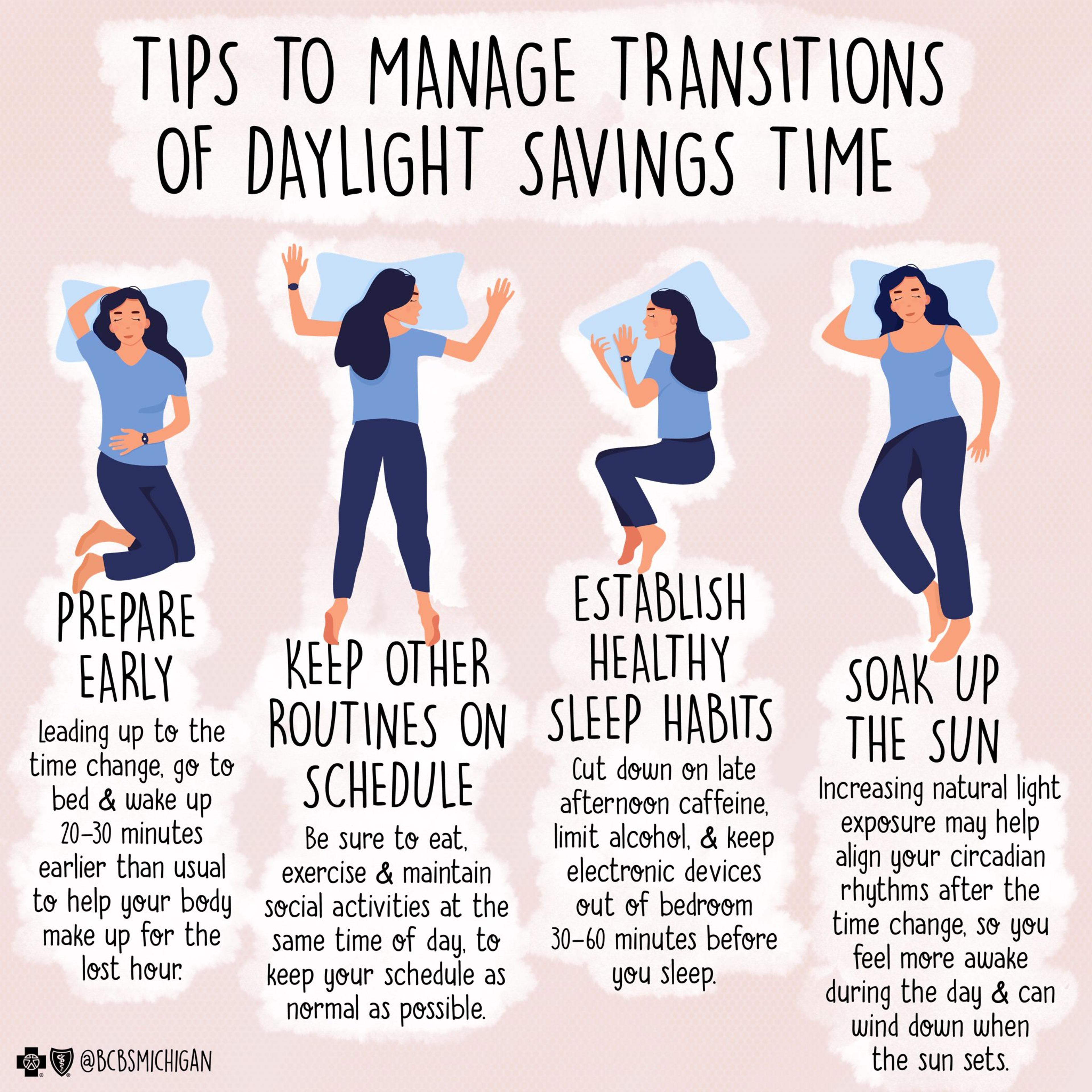Managing Sleep Loss Caused by Daylight Saving Time
3 min read

If you are someone who likes to get to bed at the same time every night, you are probably not a huge fan of the spring edition of daylight saving time (DST), which causes us to lose an hour of sleep.
Keeping a consistent sleep schedule is crucial in maintaining our body’s internal clock, also known as circadian rhythm. These are physical, mental, and behavioral changes that follow a 24-hour cycle.
When our circadian rhythms are impacted by external and environmental factors – such as light – we can struggle to fall asleep, wake up in the middle of the night and experience fragmented, low-quality sleep.
For these reasons and more, sleep experts recommend keeping a regular sleep schedule – even on weekends – to keep that internal clock running smoothly.
Studies show that individuals get better quality and quantity of rest by adhering to the same schedule and also experience a lower risk of heart disease.
How daylight saving throws offs sleep cycles
Since transitions into and out of DST alter the times in which we are exposed to natural light, circadian misalignment can occur in our bodies on these two days of the year.
When we experience darker morning and lighter evenings – like we do each March when clocks “spring” forward – our sleep-wake cycles are delayed. This can make us feel extra tired in the morning and abnormally alert at night.
Circadian misalignment can contribute to sleep loss and “sleep debt,” or “sleep deficit,” which is when you sleep less than your body needs. Sleep debt accumulates over time and can negatively impact your health.
Some sleep experts suggest that the desynchronization of our internal clocks caused by DST is associated with a slew of physical and behavioral risk factors, most of which are also linked to long-term sleep disruption. They include:
- Cardiovascular events
- Depression
- Diabetes
- Injuries, such as car accidents, caused by sleeplessness
- Moodiness and irritability
- Obesity and weight gain

Tips to manage DST transitions
Prepare early: In the days leading up to the time change, go to bed and wake up 20 to 30 minutes earlier than usual to help your body make up for the lost hour.
Establish healthy sleep habits: Cut down on caffeine late in the afternoon, limit alcohol and do not drink alcohol at all within four hours of bedtime. Also, keep electronic devices out of the bedroom 30 to 60 minutes before you go to sleep.
Keep other routines on schedule: Be sure to eat, exercise and maintain social activities at the same time of day, to keep your schedule as normal as possible.
Soak up the sun: Spending time outside in the sunlight and increasing natural light exposure may help align your circadian rhythms after the time change, so you feel more awake during the day and can wind down when the sun sets.
Related stories:
Photo credit: Getty Images









